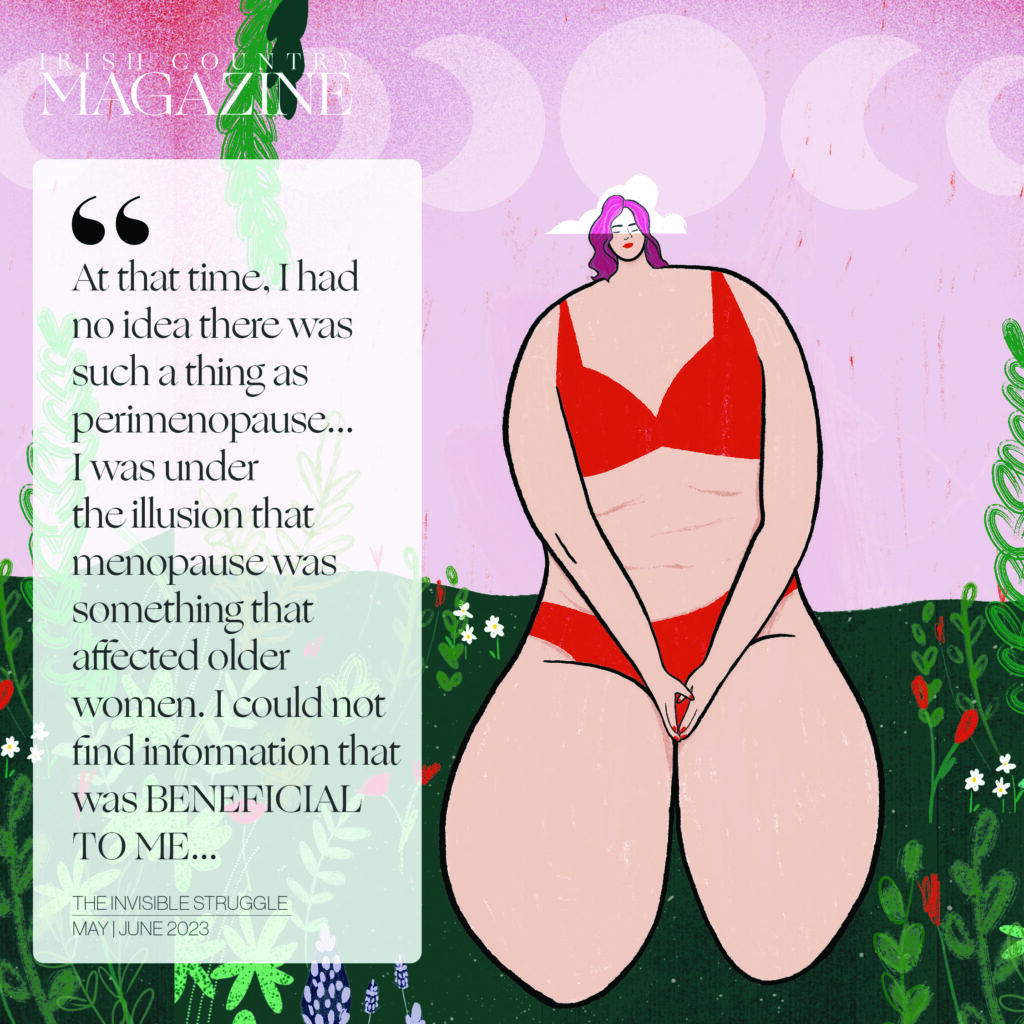While most of us have heard of perimenopause symptoms such as hot flushes or mood swings, there are a lot more issues connected to this time of life that everyone should know about
Knowledge is power and never is that more valuable than when it comes to dealing with your health. While it is true that more is being written and discussed about menopause than there has ever been in previous decades, there isn’t as much information available about perimenopause.
This is the time in a woman’s life when she starts transitioning into menopause, marking the end of her reproductive years, often exhibited by irregular menstrual cycles and fluctuating hormones. It usually starts around the age of 45 but can begin as early as the mid-thirties for some, and later for others.
Many women don’t realise that perimenopause has started because they’re waiting for their periods to stop, or perhaps they aren’t experiencing the ‘typical’ symptoms of menopause. But it can start in different ways for different people which is why it’s so important to know what to look out for.
In the latest edition of Irish Country Magazine, Niamh Devereux speaks to several women and experts about this condition. This feature is part of our new health series, The Invisible Struggle, which shines a light on the often overlooked health conditions or lesser-talked about issues, that women can face.

Here are some lesser known symptoms of perimenopause that you may not know about:
Severe anxiety
If you have found yourself feeling increasingly anxious or unusually worried on a regular basis, don’t dismiss it as ‘just feeling low.’ Anxiety, depression, intrusive thoughts or even suicidal ideation can all occur due to the impact your changing hormones are having on your brain’s neurotransmitters. This can have a massive knock-on effect in your life so it’s vital to talk to someone about how you’re feeling and contact a menopause specialist to find out what you should do to alleviate the problem.
Fear of driving or heights
If this nugget of information came as a shock to you, let us assure you that you are not alone. However, it’s a crucial one to know about because if you previously had no problem with these things and suddenly find that you do, it’s a very clear sign that something is amiss. It is naturally linked to the increased anxiety caused by the hormonal rollercoaster your body has found itself on. These tasks suddenly seem daunting and difficult and with the escalation in worry comes a dip in confidence which further enforces your desire to avoid these once simple things.
Tinnitus
Tinnitus is a perception of noise or ringing in the ear that can be a temporary issue or become an ongoing one. It can also manifest as a clicking, humming, buzzing, hissing or whistling sound. The surprising symptom can be triggered in perimenopause as oestrogen and progesterone levels start to recede, no longer protecting the ear and hearing function. The best way to deal with this is to manage your stress and talk to your GP about starting HRT (Hormone Replacement Therapy) to help balance your hormone levels.
Sore feet
While it’s more commonly associated with menopause, sore feet or plantar fasciitis can also occur during perimenopause. The main reason for it’s appearance at this time is due to the drop in oestrogen levels which leads to lower bone density and less collagen being produced. This also results in an increased risk of fracture and less elasticity in the tendons which can cause joint pain.
Increased facial hair
Although a few extra hairs around your face may not seem like the worst thing in the world, it can still be an upsetting and frustrating issue for women going through perimenopause. There’s even a name for it – hypertrichosis. It is typically caused by the increased ratio of testosterone in the system after the drop in oestrogen. Laser hair removal, electrolysis and waxing are all options to deal with this unwanted symptom but it’s also a good idea to eat a balanced diet that will help keep testosterone levels at bay.
We are running this series as we want women to know they are not alone in their suffering. Join the conversation on social media using the hashtag #TheInvisibleStruggle








